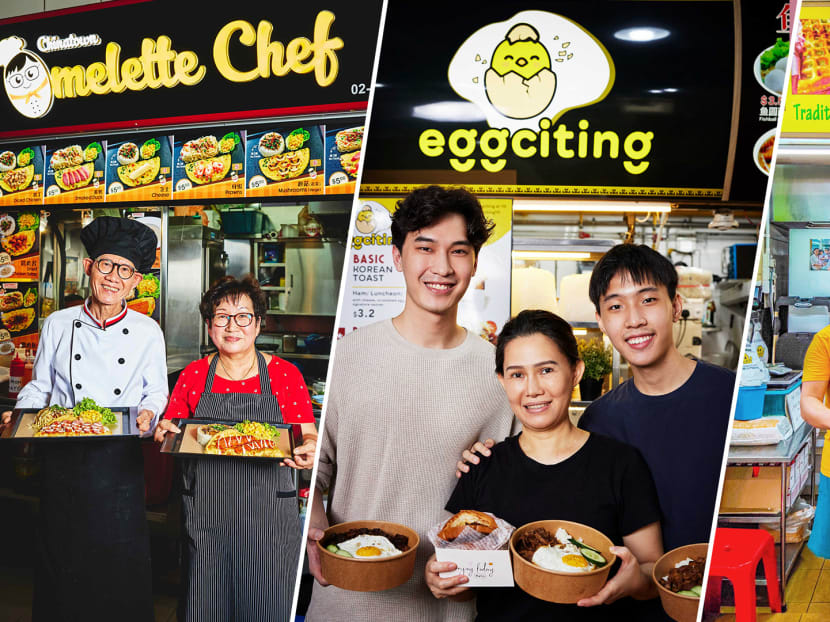Egg-Centric F&B Owners Not Increasing Prices Despite Steep Price Hike, Fear Losing Customers
“Aiyah, everyone is suffering. I have to think about [my customers] and not stress them out,” said an omelette hawker.
Egg sales are making headlines again, after the great shortage of 2020 during the Covid-19 Circuit Breaker. Two years into the pandemic, prices for eggs have spiked sharply, with consumers seeing as much as a $2 increase for a tray of 30 eggs sold at the supermarkets.
While there’s no adverse shortage of eggs now, the price hike is due to global inflation brought about by higher costs for logistics and livestock feed, which is made up of ingredients like corn and palm oil.
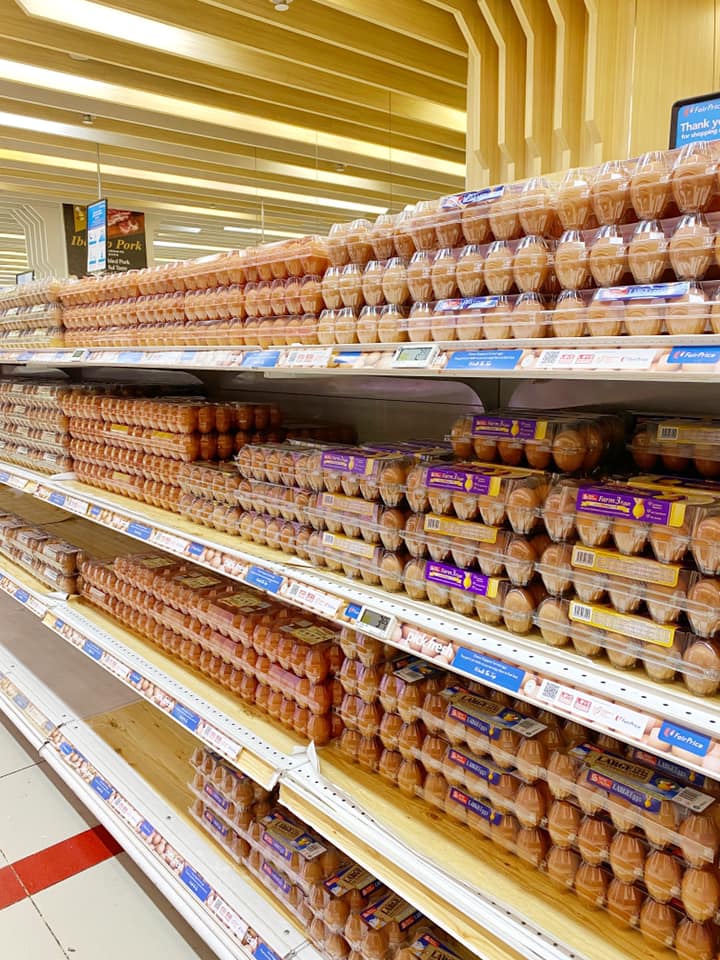
Egg-hausting situation
Last month, homegrown Seng Choon Farm also saw an outbreak of Newcastle disease, a contagious viral strain which affects the production of eggs for birds and poultry. Seng Choon had announced that it’s “facing a drop in our egg production” for the next few weeks, but reassured customers that the disease “is not a food safety concern”.
Meanwhile, egg-centric eateries in Singapore are also feeling the rising heat of inflation. F&B owners tell 8days.sg that the rising food costs have eaten into their already razor-thin profit margins. “It definitely affected my business, the price hike is too much,” says Francis Lai, 68, who runs hawker stall Omelette Chef at Chinatown Complex Food Centre.
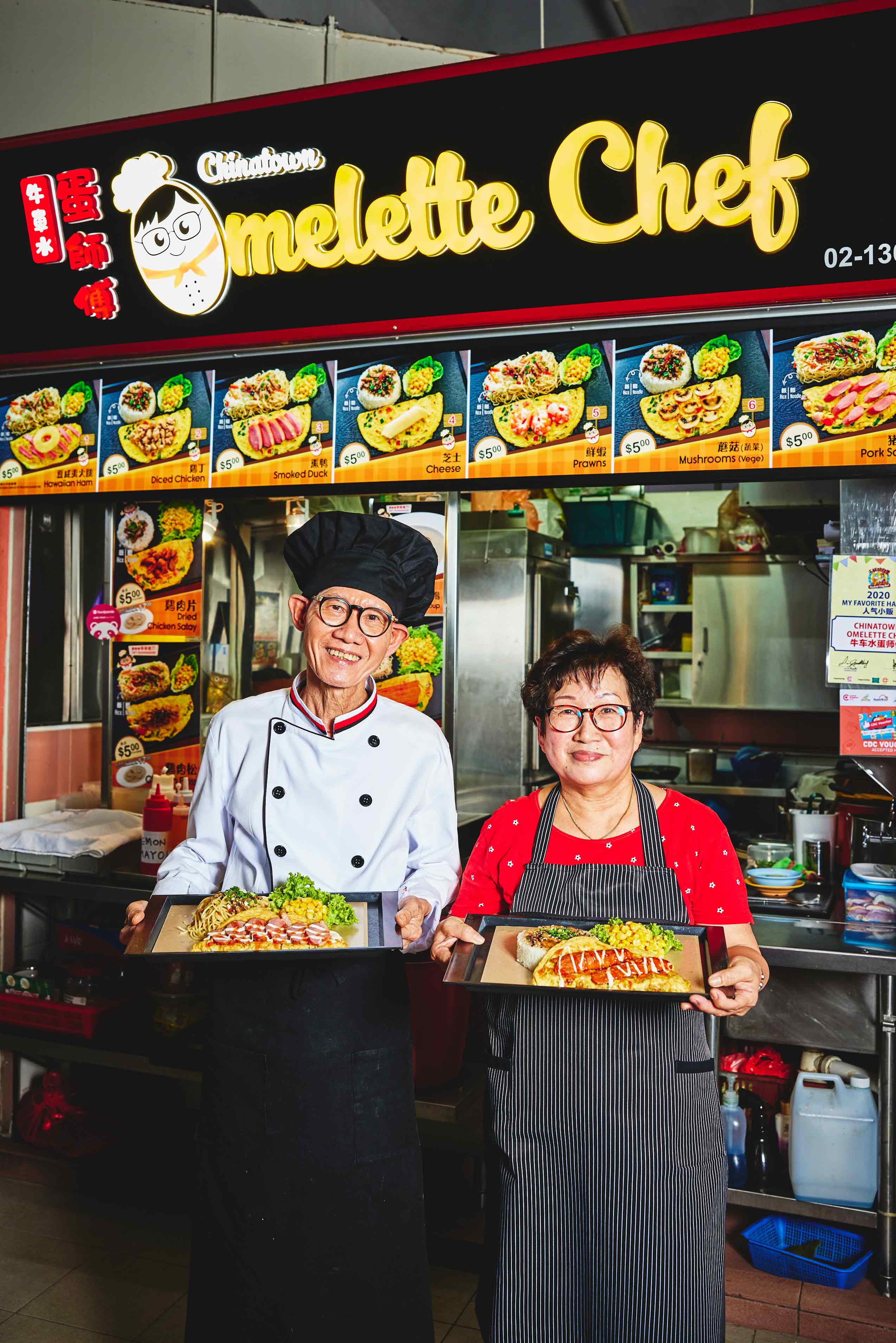
“Our profit margin is already very thin”
Francis sells omelette dishes with toppings at a flat $5 per plate, and fries his omelettes using large-sized fresh local eggs. “I used to buy 30 eggs for $6, now it’s $8.50 a tray,” he tells us. His profit margin, which is “already very thin”, shrunk by 10 per cent.
But he has no plans to increase his prices for now. “Aiyah, everyone is suffering and the market is not good. I’m in Chinatown where there are lots of elderly people, I have to think about them and not stress them out,” he shares. “I don’t hire staff and it’s just me and my wife working here, so we can still sustain ourselves.”
He points out that Covid-19 has delayed deliveries of imported eggs, thus limiting the supply. The Russia-Ukraine war had also impeded exports for egg producers like Ukraine and Poland. “When supply is low, prices will go up, this is unavoidable. Prices for meat, vegetables and oil also went up by a lot. I hope the pandemic and war will be over soon,” he says, adding that he will “see what the market is like first and assess [my prices] again in a month”.
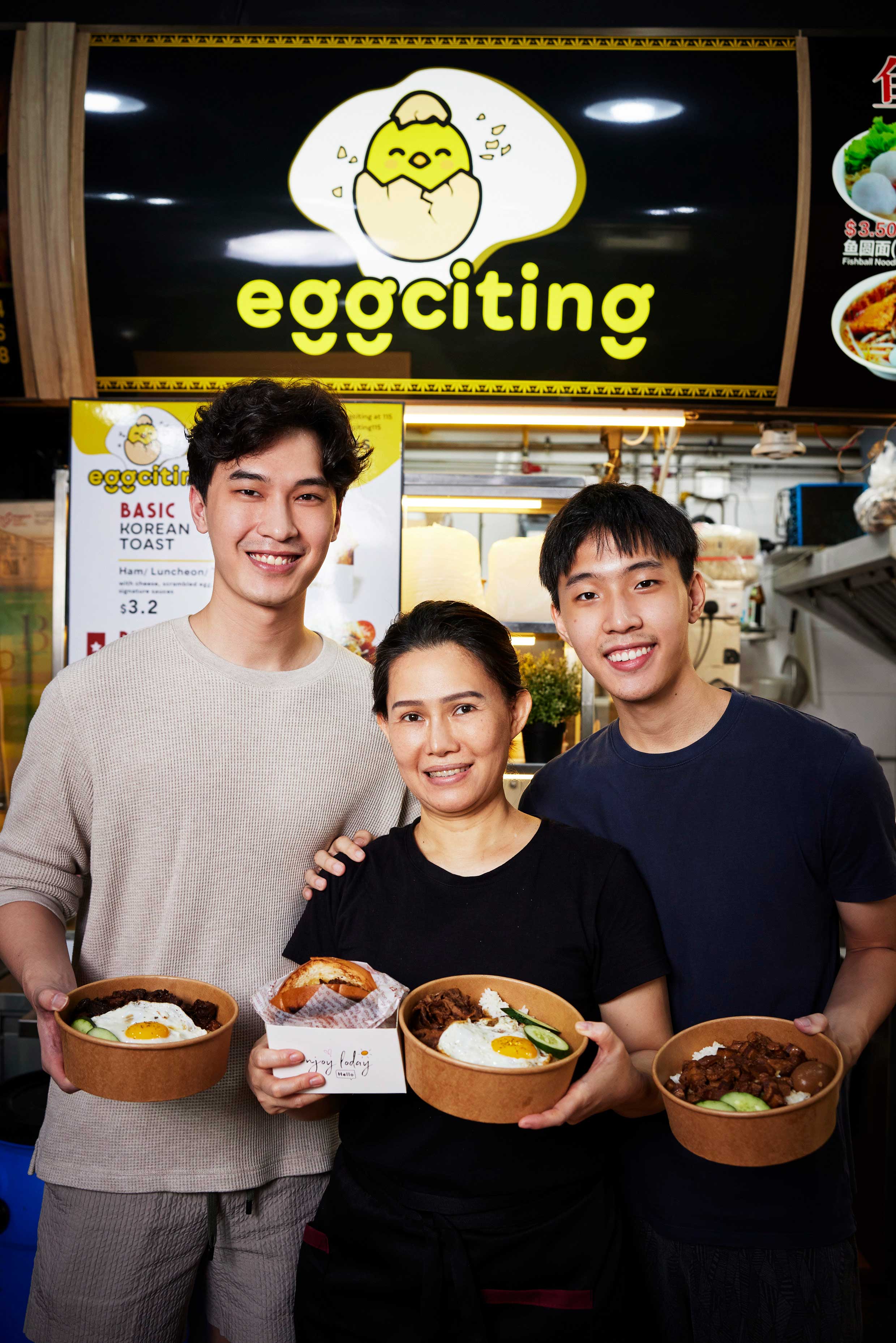
Considering shrinking portions
Korean egg sandwich hawker Lynna Yon, 45, is also fretting about egg prices. The former hairstylist started her kopitiam stall Eggciting with her sons in December last year. Back then, she had paid $5.10 for a tray of eggs, which has since jumped to $6.80. “What to do? Just bear with it. If I increase prices, there may be fewer customers,” she sighs.
To combat the egg price hike, one solution she considered was to “give less ingredients instead of increasing price”. Lynna reasons, “If I’m the customer, I’d rather stick to the same price”, though she quickly laughs and says: “But cannot leh, I’m too used to [serving my current portion]!”
She concedes that raising prices is her last resort, as she’s also paying more for other ingredients like meat. “If all the ingredient prices keep increasing, then no choice… Have to increase my prices then,” she says.
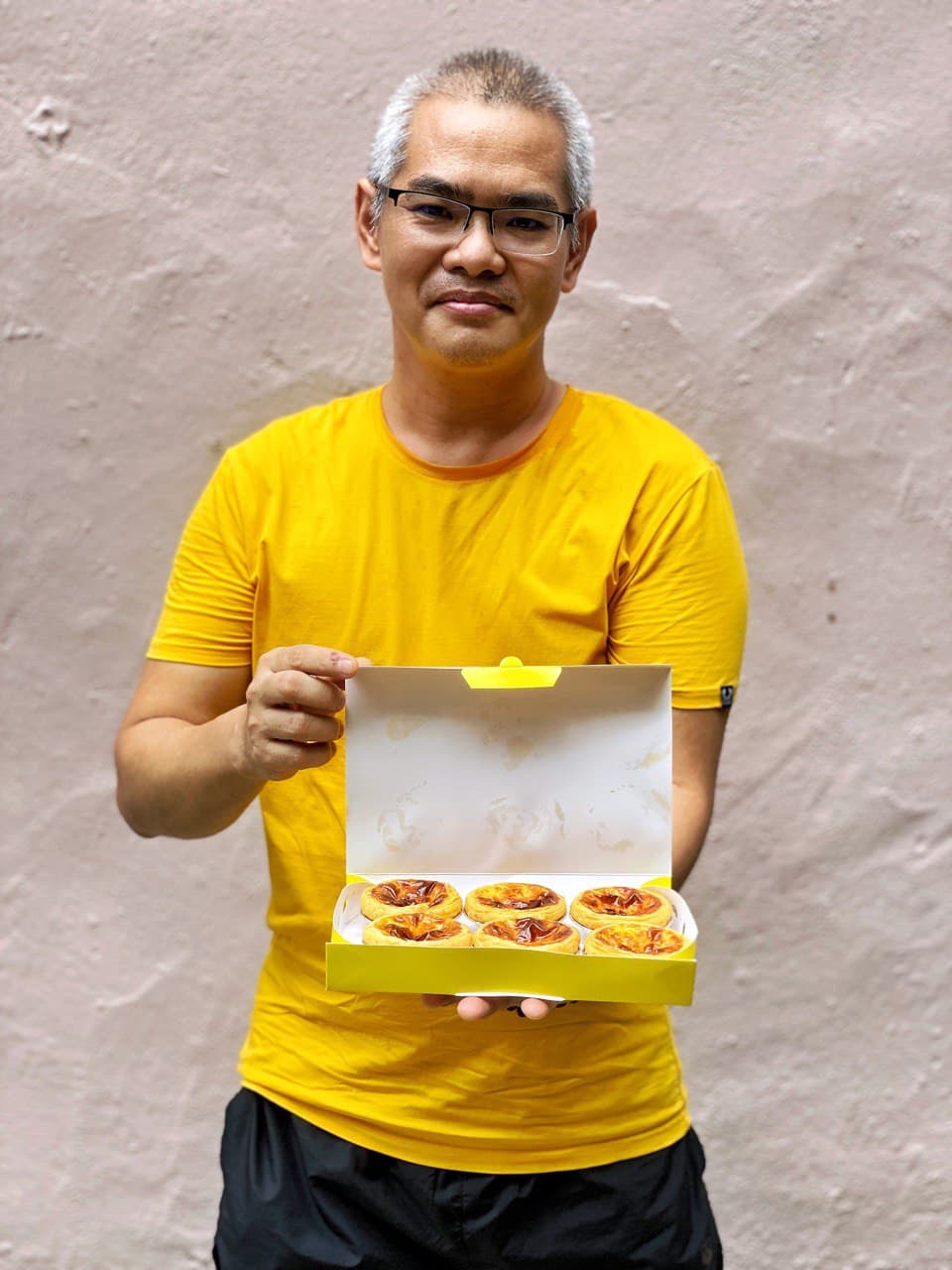
Switching to chilled pasteurised eggs
Portuguese egg tart hawker Robbie Liang, 47, would be one of those hit hard by an egg price hike. But he’s planning to absorb the increase, as he says his stall Qinde at Whampoa Drive Food Centre will be closed for three months from April to July for the hawker centre to undergo upgrading. During that period, the former engineer is planning to “take a rest”.
He has already shelled out “an extra $100 to $200 this month” for eggs. “Comparing the current egg prices to last year’s, it’s a 30 to 40 per cent increase,” he says, though he notes that “inflation is very common, it depends on how individual merchants cope with it”.
Robbie reckons that “the next three months will be critical, as ingredient prices will further fluctuate with uncertainties”. Instead of relying on expensive fresh eggs, he has already started experimenting with using chilled pasteurised eggs, which are packaged in sealed bags. “They’re in chilled condition to preserve freshness with longer duration, and the price doesn’t fluctuate that much,” he says. “I did some tests, so far the taste and appearance are not much different [from using fresh eggs].”
He’s also looking into broadening his stable of egg suppliers. “There are alternative suppliers who can offer competitive prices. Don’t just stick to one source only. If the [order] volume is high, the quote price can be negotiable,” he advises.
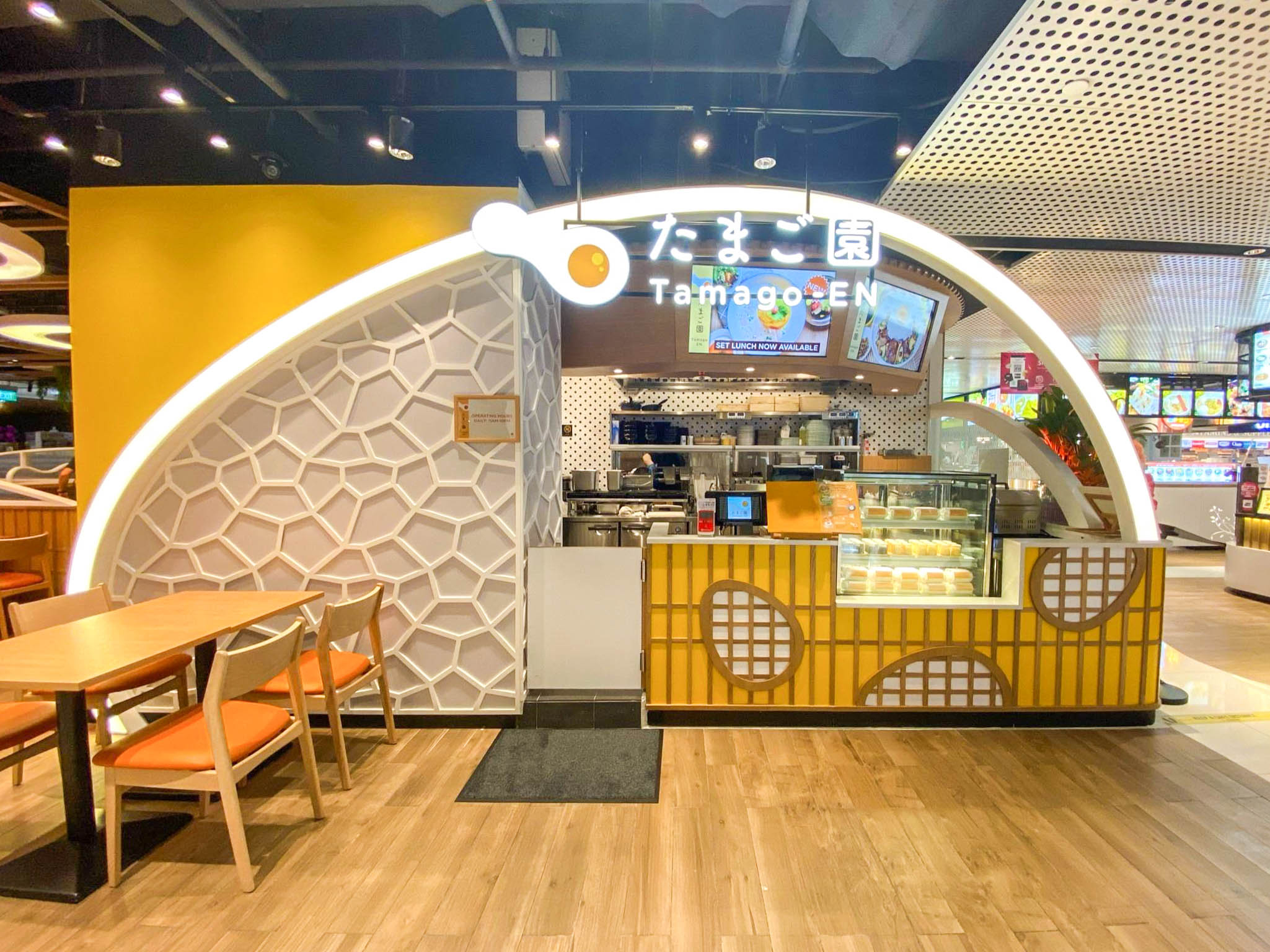
Freight charges increased for eggs
Egg-focused restaurant Tamago-En has also been paying more for Japanese eggs, as its rep tells 8days.sg that there had been a 10 per cent increase for the egg supply bill as “the freight charges have increased significantly for us with occasional surcharges”.
Tamago-En imports its eggs directly from farms in Okinawa. “As we import close to 15 tonnes of eggs every year, the relationship we have built with the farmers is very strong. Both the prices and supply are still within control,” shares the rep. “Of course, the shipment may be delayed for a few days when Okinawa experiences a typhoon, but we do stock up enough for situations like that.” As such, the restaurant “has been absorbing the price increase”.
Tamago-En also sells fresh Okinawan eggs at its 11 outlets, currently at $5.80 nett for a box of six eggs, and $8.80 for 10. The prices have remained unchanged since they first started selling the eggs here. Dine-in customers also get an additional 20 per cent discount off the eggs. But the rep points out: “To be more sustainable and to factor the increase of many other products, we may have to look into a 5 to 10 per cent adjustment on the menu prices in the next quarter.”
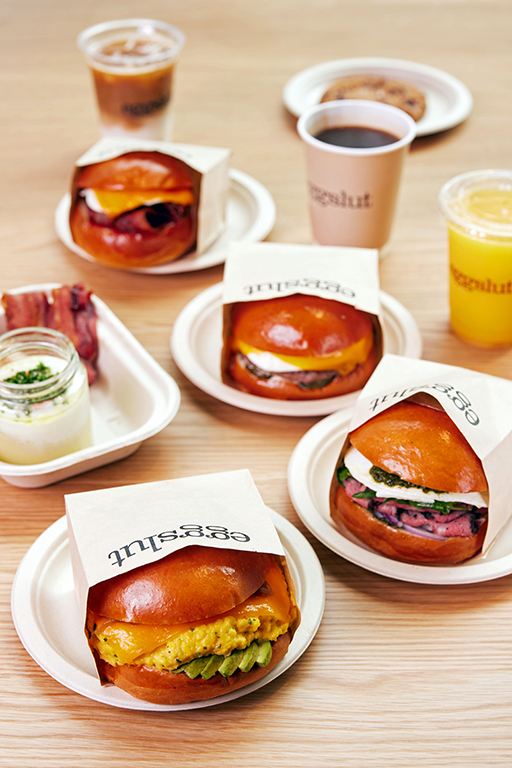
Prices constant at Eggslut
Another eatery that uses a lot of eggs is hip LA import Eggslut, which opened a Singapore outlet at Scotts Square last September. “There are no changes to our menu for now, we have no plans to increase our prices currently,” its PR rep tells us. The restaurant declines to reveal how much they are paying for eggs.
Eggslut Singapore also does not disclose where it gets its eggs from, though it shares that “our eggs are sourced from our suppliers who provide cage-free eggs with consistent and premium quality at all times”.
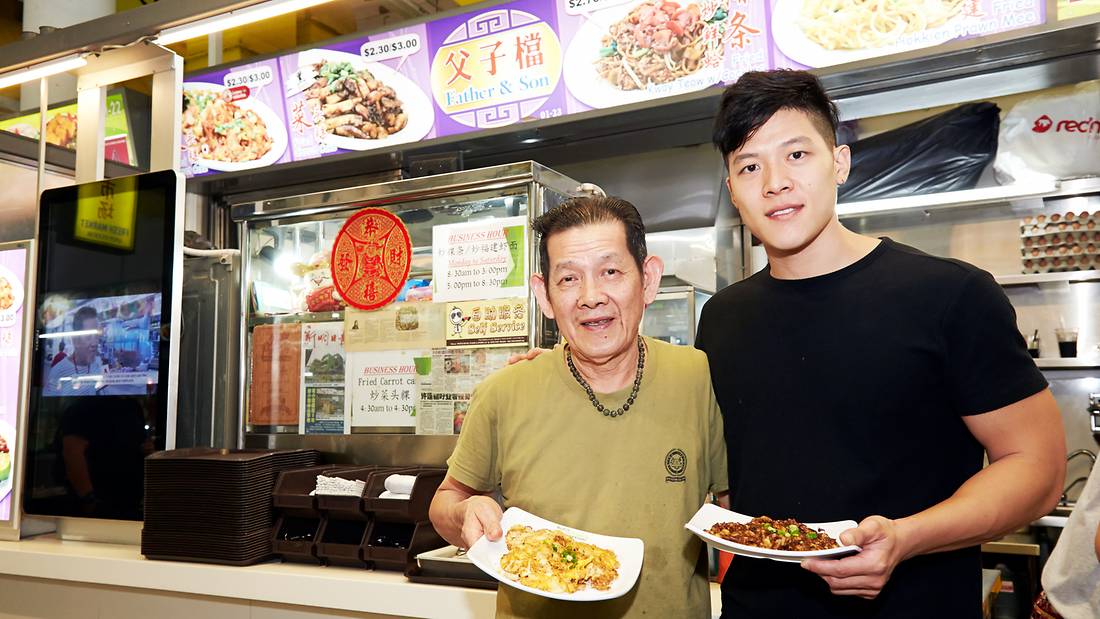
“Bo bian, endure lor”
Millennial hawker Walter Tay, 33, used to sell carrot cake with his father at their Father & Son stall in Bukit Panjang. But since the start of 2021, he has left the hawker trade to go into cryptocurrency. “After Covid-19 hit, I knew all this [price inflation] would happen, so I focused on crypto. True enough, the prices for eggs nearly doubled,” he says. “When I was still chionging at the stall, an egg was 17 cents. It’s 26 cents now.”
His dad Tay Key Huat, 71, is still frying carrot cake at their stall. “He said bo bian [Hokkien for ‘no choice’], endure lor. We aren’t paying GST and have to follow NEA’s low pricing policy,” Walter shares. According to him, oil prices have also gone up: “It’s insane leh. Oil was $18 a tin, now it’s $54.”

